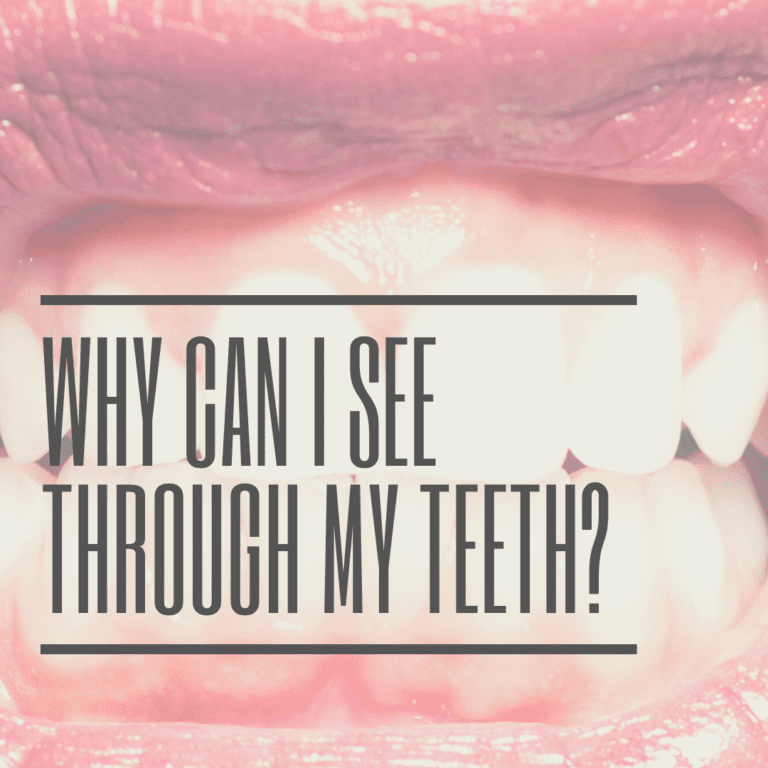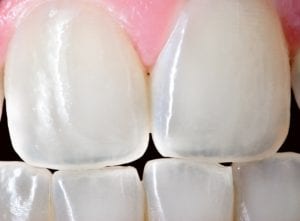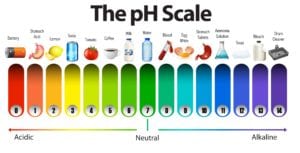Why Can I See Through My Teeth?


Have you ever looked in the mirror while brushing or flossing and noticed that you can see through the tips of your teeth? If this is something you’ve noticed, then your next thought was probably why can I see through my teeth? After all, normal teeth are opaque meaning that you should not be able to see through them. So if that’s the case, what causes the tips of your teeth to suddenly go from being opaque to being translucent?
For starters, your teeth likely did not become translucent as suddenly as you may think. This is because teeth can become translucent due to the effects of enamel erosion, which is a slow, gradual process. As the enamel wears down and becomes thinner, it begins to lose its natural color. This allows the underlying dentin layer to show through. However, dentin does not extend all the way to the tip of the tooth, meaning that the tips of your teeth are completely composed of enamel. This is why the tips of your teeth can look translucent, while the rest of your tooth looks opaque.
At this point you are probably wondering what types of things are so strong that they can damage tooth enamel, the strongest substance in the human body. While there are several things that can cause your enamel to erode over time, here are the key reasons for the type of erosion associated with translucent teeth:
Acidic Diet
Everything you eat and drink not only affects your overall health, but your oral health as well. In particular, foods and beverages with higher acid content can damage your enamel by eroding it. Some examples of acidic foods and beverages are citrus fruits and sodas. Frequently consuming acidic foods and beverages constantly exposes your teeth to harmful acids and lowers the overall pH concentration of your saliva. A pH concentration of 5.5 or lower causes your tooth enamel to demineralize, which is the first step in becoming eroded. Overtime, the enamel will lose its ability to mineralize, which means it will be permanently damaged.
Medical Conditions
It is unfortunate that there are also some medical conditions that can cause enamel erosion. Most of these conditions are those that regularly expose the teeth to highly corrosive stomach acid. These include heartburn, acid reflux, morning sickness, bulimia, and other conditions that cause frequent vomiting. Surprisingly, Celiac disease can also increase the likelihood of enamel erosion, since this disease negatively impacts the formation of healthy enamel.
Enamel Hypoplasia
In some cases, a condition known as enamel hypoplasia can occur. This condition limits the production of healthy enamel, which can cause the enamel to be abnormally thin or non-existent. The enamel that does form tends to have white spots, pits, and grooves. However, people with enamel hypoplasia are more likely to develop translucent teeth since their enamel is already weaker.

Can my dentist fix translucent teeth?
The good news is that, yes, your dentist can fix translucent teeth. Having translucent teeth fixed not only improves the appearance of your teeth, but it decreases the risk of developing tooth decay due to weakened enamel. Depending on your individual case, your dentist may recommend one of the following treatments for translucent teeth:
Bonding
Dental bonding is a non-invasive procedure that bonds composite resin to the enamel in order to restore the look and function of your teeth. Once the composite resin has been applied to the tooth, it will need to be shaped before it is hardened in place. The entire procedure is relatively quick and can be completed in a single dental appointment. Afterwards, the results last around 5-7 years.
Veneers
Veneers are thin shells made from porcelain or composite that are cemented onto the front side of the affected teeth. These shells act as barriers between the tooth enamel and outer stimuli, and they also improve the look of your smile. Since veneers are custom made in a dental lab, it generally takes a minimum of two appointments in order to complete. In some cases, your dentist may also need to remove a thin layer of enamel so that the veneer can fit over your tooth properly. After veneers are placed, then last around 10-15 years.
Crowns
Dental crowns are tooth-shaped caps that encapsulate the entire tooth. Since they require the most preparation and modification of the natural tooth structure, most dentists will only recommend them if a significant portion of your tooth has been affected by enamel erosion. Dental crowns are also made in a dental laboratory and take a minimum of two appointments to complete. They also last about 10-15 years as well.






Recent Comments